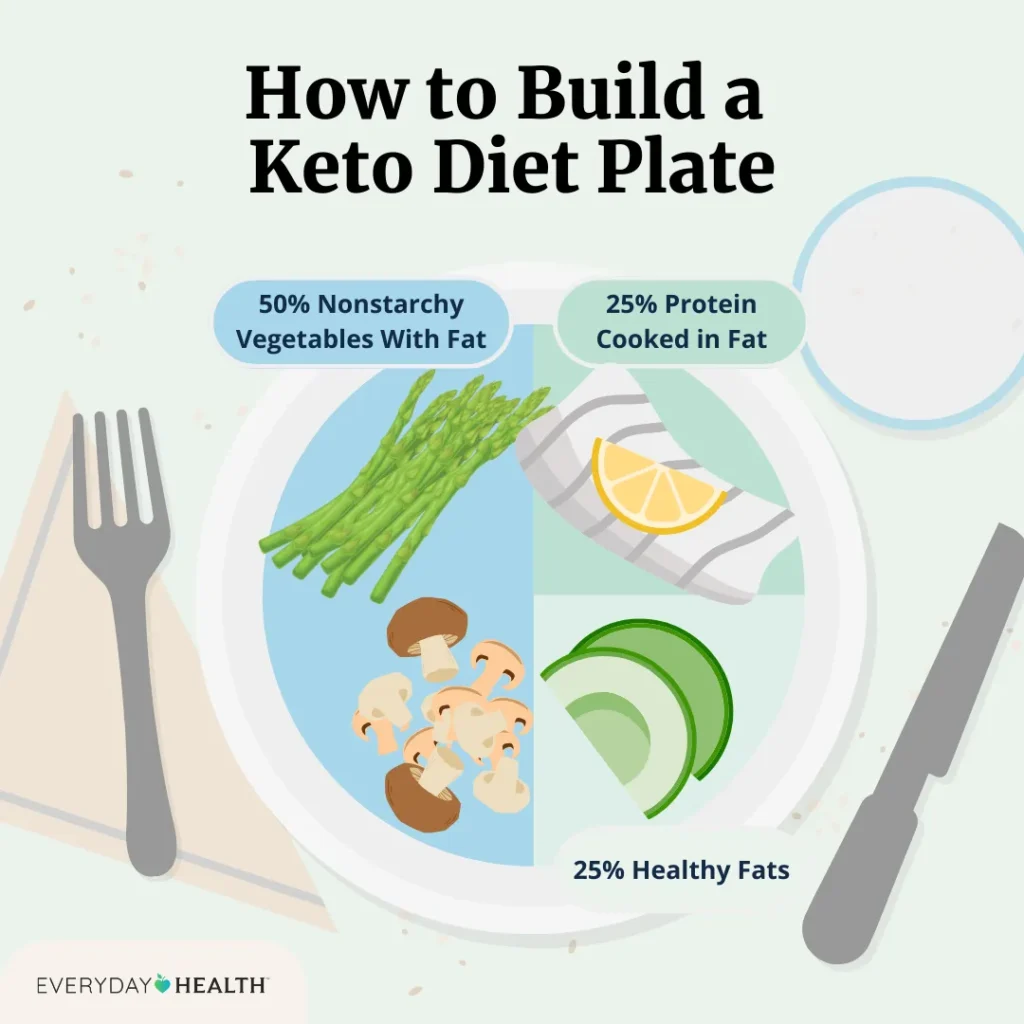
The keto diet has gained popularity in recent years as a way to lose weight and improve overall health. But what exactly is the keto diet, and how does it work? In this article, we will break down the basics of the keto diet, including what it is, how it works, and what you need to know before starting. We will also address some frequently asked questions about the keto diet.
What is the keto diet?
The keto diet, short for ketogenic diet, is a high-fat, low-carbohydrate diet that has been shown to help with weight loss, improve insulin sensitivity, and reduce inflammation in the body. The goal of the keto diet is to put your body into a state of ketosis, where it burns fat for fuel instead of carbohydrates.
When you consume a high-fat, low-carb diet, your body enters a state of ketosis, where it begins to produce ketones from fat stores. Ketones are a type of fuel that your body can use instead of glucose, which is derived from carbohydrates. By limiting your intake of carbohydrates and increasing your intake of healthy fats, you can train your body to burn fat for energy instead of relying on glucose.
How Does the keto diet Work?
The keto diet works by limiting your intake of carbohydrates and increasing your intake of healthy fats. When you eat a high-fat, low-carb diet, your body enters a state of ketosis, where it begins to produce ketones from fat stores. Ketones are a type of fuel that your body can use instead of glucose, which is derived from carbohydrates. By limiting your intake of carbohydrates and increasing your intake of healthy fats, you can train your body to burn fat for energy instead of relying on glucose.
The keto diet also helps to stabilize blood sugar levels and reduce insulin resistance, which can help with weight loss and improve overall health. By limiting your intake of carbohydrates, you can also reduce inflammation in the body, which can help with conditions such as arthritis, heart disease, and diabetes.
What You Need to Know Before Starting the keto diet
Before starting the keto diet, it is important to consult with a healthcare provider or registered dietitian to ensure that it is safe and appropriate for you. The keto diet is not suitable for everyone, especially those with certain medical conditions such as diabetes, kidney disease, or liver disease. It is important to work with a healthcare provider to determine if the keto diet is right for you and to develop a plan that meets your individual needs.
It is also important to understand that the keto diet can be challenging to follow, especially in the beginning. You may experience symptoms such as fatigue, headaches, and irritability as your body adjusts to burning fat for fuel instead of carbohydrates. It is important to be patient and persistent, as these symptoms typically subside as your body becomes adapted to the keto diet.
In addition, it is important to focus on consuming healthy fats, such as avocados, nuts, seeds, and olive oil, while limiting your intake of processed foods and unhealthy fats. It is also important to stay hydrated and to consume an adequate amount of protein to support muscle growth and repair.
Frequently Asked Questions About the keto diet
1. Is the keto diet safe for everyone?
The keto diet is not suitable for everyone, especially those with certain medical conditions such as diabetes, kidney disease, or liver disease. It is important to consult with a healthcare provider before starting the keto diet to ensure that it is safe and appropriate for you.
2. Can I still eat fruits and vegetables on the keto diet?
While fruits and vegetables are typically high in carbohydrates, there are some low-carb options that can be included in the keto diet, such as berries, leafy greens, and cruciferous vegetables. It is important to focus on consuming non-starchy vegetables and low-sugar fruits while following the keto diet.
3. How long does it take to enter ketosis on the keto diet?
It typically takes 2-7 days to enter ketosis on the keto diet, depending on your individual metabolism and carbohydrate intake. It is important to monitor your carbohydrate intake and adjust as needed to reach and maintain ketosis.
4. Can I exercise on the keto diet?
Yes, you can exercise on the keto diet. In fact, many people find that they have increased energy and endurance while following the keto diet. It is important to stay hydrated and to consume an adequate amount of protein to support muscle growth and repair while exercising on the keto diet.
5. Can I drink alcohol on the keto diet?
While some forms of alcohol are low in carbohydrates, it is important to consume alcohol in moderation while following the keto diet. It is also important to be mindful of mixers and sugary additives that can add extra carbohydrates to your diet.
In conclusion, the keto diet is a high-fat, low-carbohydrate diet that has been shown to help with weight loss, improve insulin sensitivity, and reduce inflammation in the body. Before starting the keto diet, it is important to consult with a healthcare provider to ensure that it is safe and appropriate for you. It is also important to focus on consuming healthy fats, limiting processed foods, and staying hydrated while following the keto diet. By following these guidelines and being patient and persistent, you can successfully follow the keto diet and reap its many benefits.